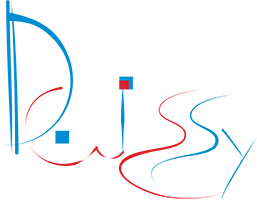SpicE
-
Info
Title Special Education STEAM Academy
Acronym SpicE
Programme Erasmus+
Project Number 101056159
Start – End Date 01/07/2022 – 30/06/2025
Duration 36 months
Action ERASMUS-EDU-2021-PEX-TEACH-ACA
Funding Agency European Union
Total Project Funding € 1.486.729,86
Project Homepage n/a
Status Ongoing
Description
SpicE’s bundle of actions aims to enhance Primary Education Teachers’ ability to implement effective
STEAM instruction for protecting students with Mild Disabilities (Special Education) from educational and social exclusion. STEAM is used both as the means and as the purpose for enabling a much-needed shift in Special Education in Primary Education both at an in-service and pre-service level. It sought to uplift barriers for a significant number of students that are silently, slowly, and indirectly marginalized from the early stages of European school systems due to the lack of Teachers’ STEAM skills and the lack of a methodological liaison (along with practical guidelines and curricula) between STEAM and Special Education educational models. The goal of the project is to design a STEAM in Special Education Competence Framework (identify skills gaps and map them to existing and new job profiles), develop an Educational Programme (identify proper didactical approaches and map skills to educational goals of a curriculum), develop, pilot and evaluate the corresponding Training Programme in 4 pilot countries. The SpicE mobility actions of in-service and pre-service teachers (12 per country participating in 4 physical mobility sessions- a total of 48 teachers exchanged), we believe will have a profound impact on the field. The mobility sessions will be a unique opportunity to build significant knowledge where little has been done or even recorded. Given the, generally, weak relationship between observable teacher characteristics and student achievement, SpicE’s mobility actions will strive both to further add value and organise methodological, much needed data from practical situations.
SpicE will use an approach “from the community and for the community”, to create and nurture a strong
Community of Practice that will, eventually, spawn a permanent ‘STEAM in Special Education Alliance’
structure
Participants (target groups)
- Higher education institutions, HEI tutors, HEI curriculum designers,
- Teachers of Primary Education & teacher associations,
- Relevant Stakeholders
- educational policy makers, researchers, parents, and institutions providing special education and training
Project Outcomes
Work Package 1: Project Management
HOU will coordinate the overall management of the project in order to ensure the effective and efficient achievement of all project aims and activities within the time designated, according to financial availability and rules. HOU will also be responsible for the project evaluation activities in cooperation with project partners and external experts, policymakers, and key stakeholder
Work Package 2: Development of SpicE Strategy for STEAM in Special Education
Indicative of the project approach is that the core project outcome is the Competence and Education framework for STEAM in Special Education, which will detail the competencies necessary to design and implement STEAM Special Education activities. It will expand / specialize the framework produced by the STEAMonEDU project with Special Education-specific competencies using the UDL methodology. What is more, due to the increasing relevance of digital skills in all the sectors of civil society, the Competence and Education framework for STEAM in Special Education could be possibly internalized by local and national authorities to support the design and implementation of synergistic policies among different policy areas (education and training, social, digital etc.).
Work Package 3: Professional development of STEAM Special educators
Design of the Joint Curriculum for STEAM in Special Education and design the Training Programme for STEAM in Special Education. Also, will be development of Learning Material
Work Package 4: Pilot Testing and Evaluation
During this WP, partners from all countries will pilot the training programme. The training programme is comprised of a MOOC, 2 rounds of peer learning, and a blended mobility programme. It is estimated that at least 100 teachers (in service, pre-service teachers) will complete the full programme (not including physical mobility). It is estimated that over 750 participants will complete the MOOC portion alone and 48 to the physical mobility programme.
Work Package 5: Dissemination and Exploitation
The project will develop an online peer crowdsourcing platform as the principal environment to support the CoP: exchange of experience, collaboration and creative work among community members will be supported both by services and facilitators. The CoP will be conceived as a user centric space that will gradually evolve by considering and analyzing the needs of its members.
Results and news will be posted on projects, social networks and other digital platforms.
Publicity
Contact
Partners
- HELLENIC OPEN UNIVERSITY with the DAISSy team, Greece, Coordinator
- Research Innovation and Development LabPrivate Company – ReadLab, Greece
- University of Macedonia – UoM, Greece
- Regional Directorate of Eduucation of Western Greece –RDEWG, Greece
- University of Alicante – UA, Spain
- Sindicat Treballadores i Treballadors Ensenyament del Pais Valencià Intersindical Valenciana –STEPV, Spain
- Sindikat Obrazovanie Kam Kt Podkrepa – TUT, Bulgaria
- Trakia Universitet – TUNI, Bulgaria
- Osnovno Uchilishte Hristo Smirnenski – OUHS, Bulgaria
- University of Cyprus – UCY, Cyprus
- Ministry of Education, Sports and Youth – MOESY, Cyprus
